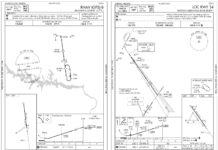What should you do when you’re flying along and waiting for a very important transmission from ATC but you don’t get it on time, or even minutes after? Or perhaps you notice something that sounds off or that you are not sure about. When you figure out that something needs be said, what exactly do you say? As PIC, pilots have more power than they realize, especially when dealing with abnormal scenarios.
What is ATC QoS?
How many times have you observed a customer service person performing below reasonable expectations? You might well have ultimately given up and expressed a need for a higher level of service such as a supervisor. Sometimes, I have to really work hard at keeping my patience when dealing with a situation like this. Yes, I know they are doing a job and maybe some of them are just there to collect a paycheck. Of course, you can’t force someone to like their job or do it well.
Quality of Service (QoS) by definition is: “Measurement of overall performance of a service.” How well did that restaurant prepare my food? How well was I treated? In aviation, this translates into pilots thinking when ATC should be doing something compared to how well and when they are actually doing it. Some pilots can listen on frequency for a few minutes and tell whether a controller knows what they are doing.
I’m not a supervisor; I can’t change the way people act or work their traffic. Besides, since most controllers are Type A personalities and, once they’re certified, don’t really want any input from fellow controllers or pilots. I’m not trying to throw anybody under the bus, but we all already know that some controllers, like some pilots, are better than others.
This raises the question; “What is good Quality of Service at ATC” in the opinion of a pilot? At the DMV, it’s not potentially life or death if the representative doesn’t do their job, but when you’re flying, certain info needs to be passed as soon as it’s known. ATC tells you to extend downwind, you comply, but then they forget about you and you are about to enter another Class D, where do you draw the line? Well inside the airspace boundary would be my answer.
ATC QoS is the controller doing his or her job and promptly keeping the pilot apprised of any pertinent information. They don’t have to like their job or be as cheerful as most controllers, but they are required to provide a service. If a pilot has a problem or question about ATC services while in the air that pertains to safety or even efficiency of flight, by all means ask ATC on frequency. If it bothered you but it can wait until on the ground, I’d recommend waiting. There is a way to move forward if you choose to pursue the matter after you land.
Customer Service Reps
While most controllers might object to the wording, we at ATC are essentially “Customer Service Reps,” while pilots are the customers of the National Airspace System (NAS). The controller’s job is to sequence and separate, generally on a first-come, first-served basis. The second we plug into position, our priorities change.
Let’s assume you are flying along and you start to experience a decline in ATC services. As COVID-19 restrictions eased and flying increased, some controllers needed to knock the rust off. Maybe you could tell by voice quality alone that they sound good but at the same time are falling behind. The reason doesn’t matter; at what point do you as PIC speak up?
Taking a step back to see the big picture, I find that every pilot has a different threshold. It varies by situation. Let’s assume you are flying in IMC, coming down the ILS and you call Tower, “Tower, N12345, ILS 18.” The tower controller hasn’t had their coffee yet and keys up to say, “…Roger…” I use this example because I’ve seen it more than once.
Adding some intensity, the ceiling is right at mins and you’re setting up for landing on a four-mile final. What would you do? At what point do you key up and ask for a landing clearance? Tower didn’t say to report anything or fly a certain speed … nothing, no instructions. In IMC, I would bug tower by about four miles; “Tower, N12345, are we cleared to land?” Flip that to VMC (still IFR) and I would wait a tad longer. Would you?
If there is time, most controllers will tell you why they can or cannot do something to give pilots a better view of what is going on. “N12345, Tower, report a 4-mile final Runway 18. Disabled aircraft on runway.” QoS affects pilots’ actions more than one may realize. Add pattern traffic and all other pilots listening on frequency and you get a downhill domino effect when QoS is subpar.
So, lack in service is one thing, but you might occasionally observe angry service. I work with a few controllers who just seem perpetually unhappy. You know the type. Some can even get angry if questioned. Do your best to stay safe and professional. If you absolutely have to say something, try to keep it professional. “Mark the tapes” may help cool things off. If it doesn’t, you voiced it on frequency, and you should also write it down when you can, noting the time and frequency. Then you have your data should you need to inquire about service.
If Push Comes to Shove
No pilot relishes the possibility of a pilot deviation. Similarly, controllers also want to avoid deviations. So, although non-standard phraseology, appropriating some controller language and saying, “Possible controller deviation” isn’t likely to make any new friends. But, there is another avenue.
There is a process that is slightly more work than a simple “NASA” report. It’s called a “pilot inquiry” or simply put, a complaint. While I always encourage pilots to fill out NASA reports, the more immediate option for answers is a phone call to the controlling agency’s Air Traffic Manager (ATM) or Supervisor on duty. Make sure you have your data ready before calling: your callsign, your location at the time, frequency, time (as close as possible), and exactly what happened from your point of view. You relay this info and your concern to management and it becomes official that they have to look into it.
If you are requesting access/copies of official ATC recordings (from the controlling facility) or radar feed, you can also submit a FOIA (Freedom of Information Act) request. However, be aware that FOIA requests may not be free/cheap. A FOIA request for an ATC recording can cost around $500+. Whether you decide to go on that conquest or not is up to you. I’d say most of the time, you can have your voice heard and registered by simply calling the facility in question and talking to the ATM. If you haven’t heard anything within a couple weeks or so, make a follow up call to get a status update. Most scenarios have many avenues on which the pilot can journey to find answers. Just make sure you “do, or do not … there is no try.”
You’re the Customer
I want pilots to know that they are the customers. We controllers are essentially customer service reps. Most of the time we can accommodate your request but sometimes it’s a hard “no” or at least a “not yet.” Many GA pilots not attached to a company don’t think there is much they can do to have their voice heard, so they shrug it off and move on. While hopefully the pilot learns something from that event, we controllers have no idea we may not be giving the best service, unless we are kept in check by our aeronautical associates.






Elim, thanks for the article. This discussion on quality of service reminded me of the 2016 crash of Cirrus SR20 N5252G at William P Hobby Airport (KHOU), Texas. The female pilot was trying to land, and kept getting re-routed between 2 different runways, due to other landing traffic. I would be curious what QoS you think she received? I understand ATC needs to handle lots of other traffic, but they kept re-directing her until she completely lost situational awareness and made a big (fatal) mistake. At what point do you give priority to the small aircraft that arrived “first”, versus the endless stream of large jets that keep arriving? Do you think ATC should have done anything different?